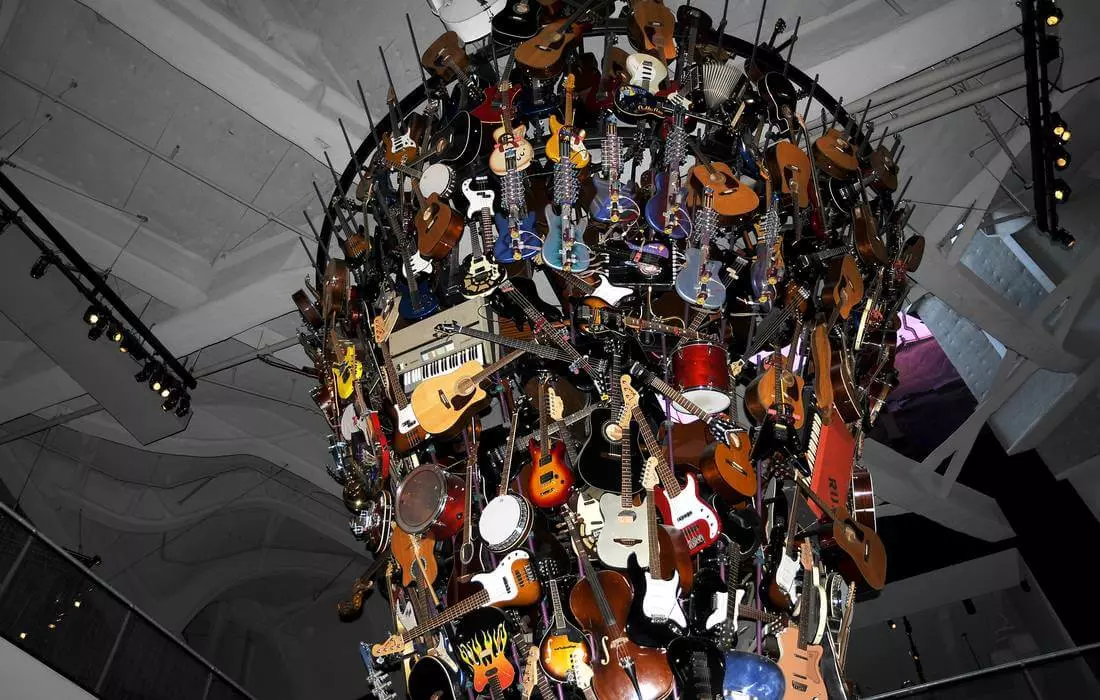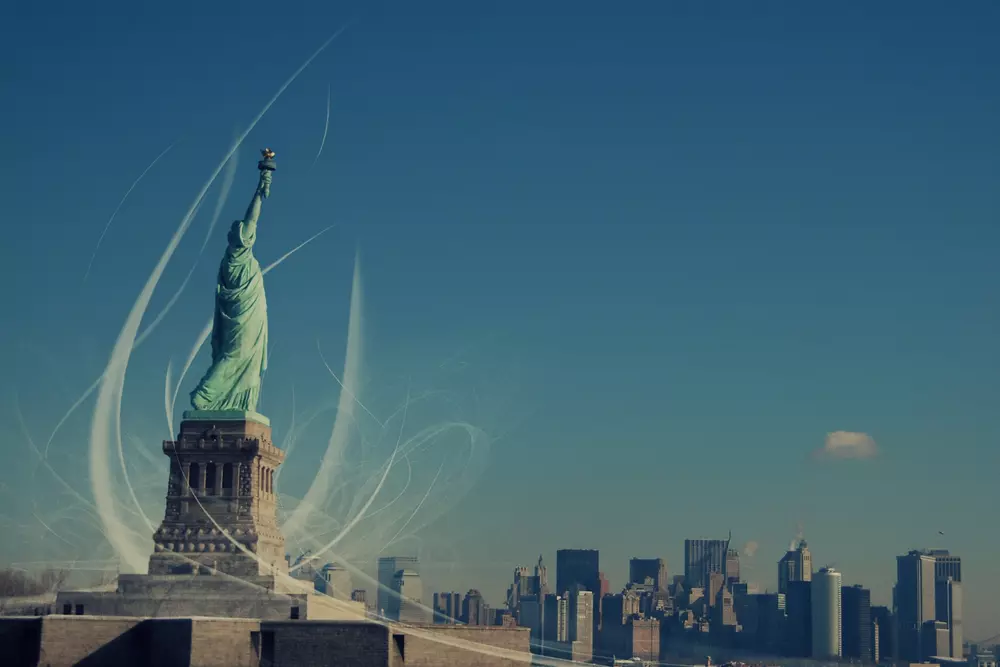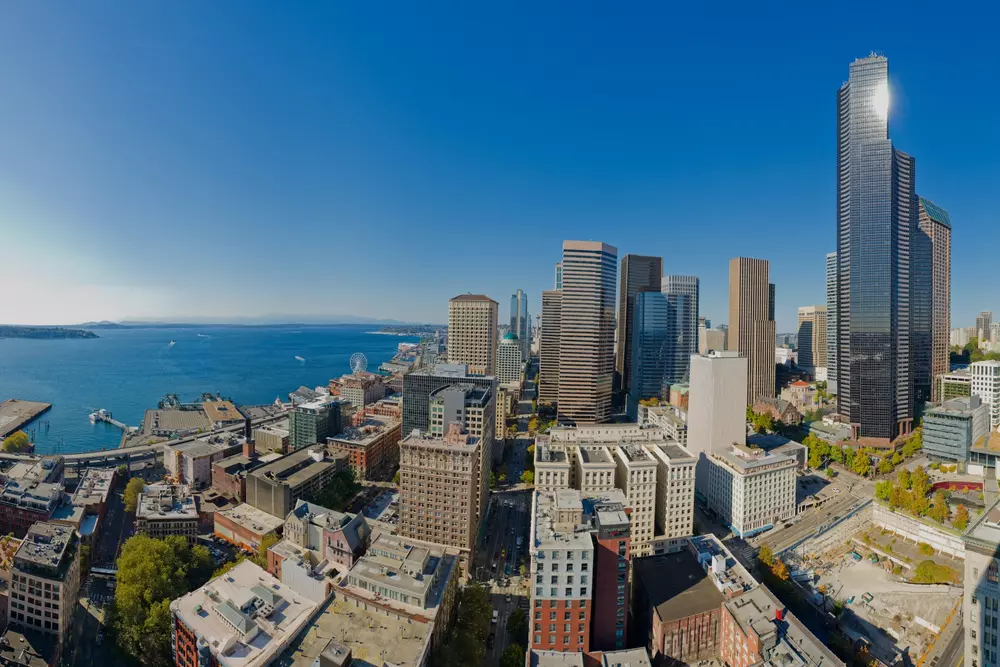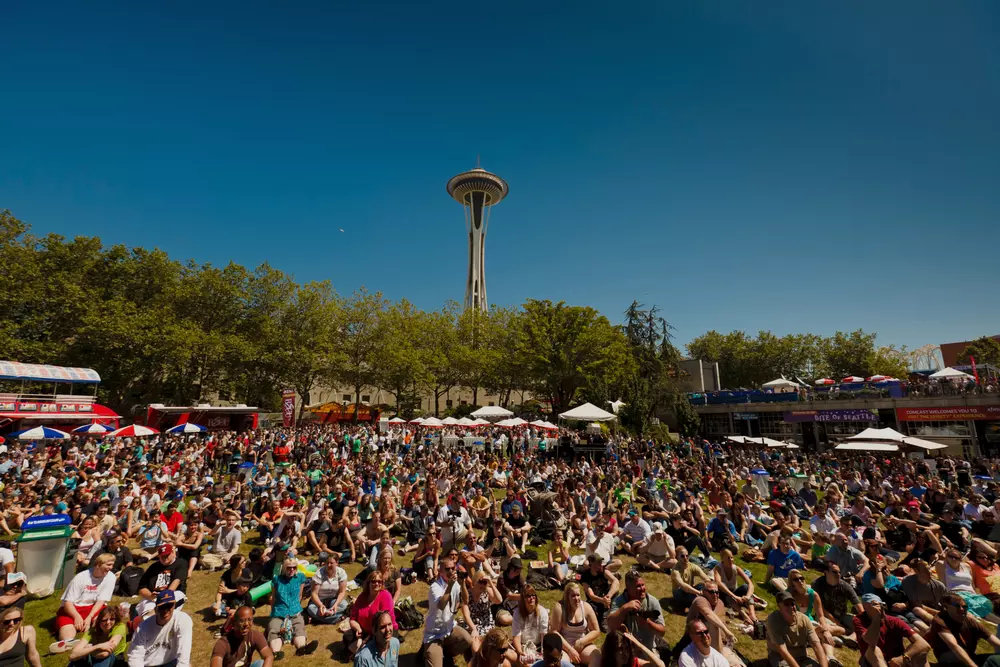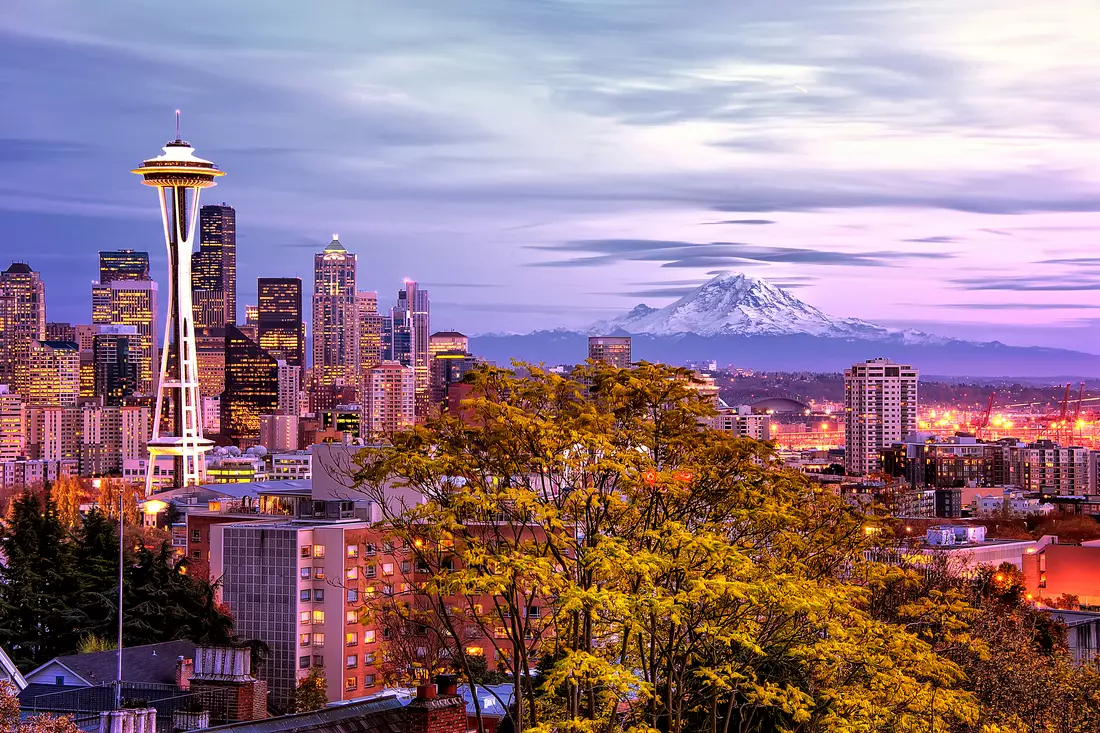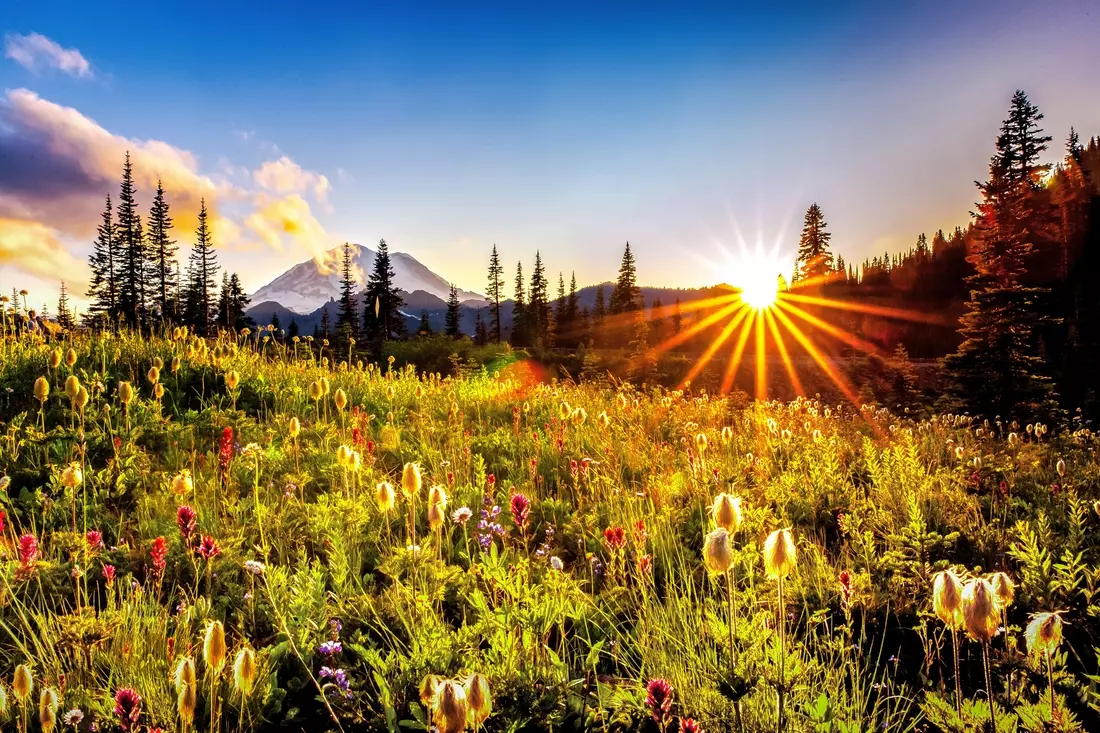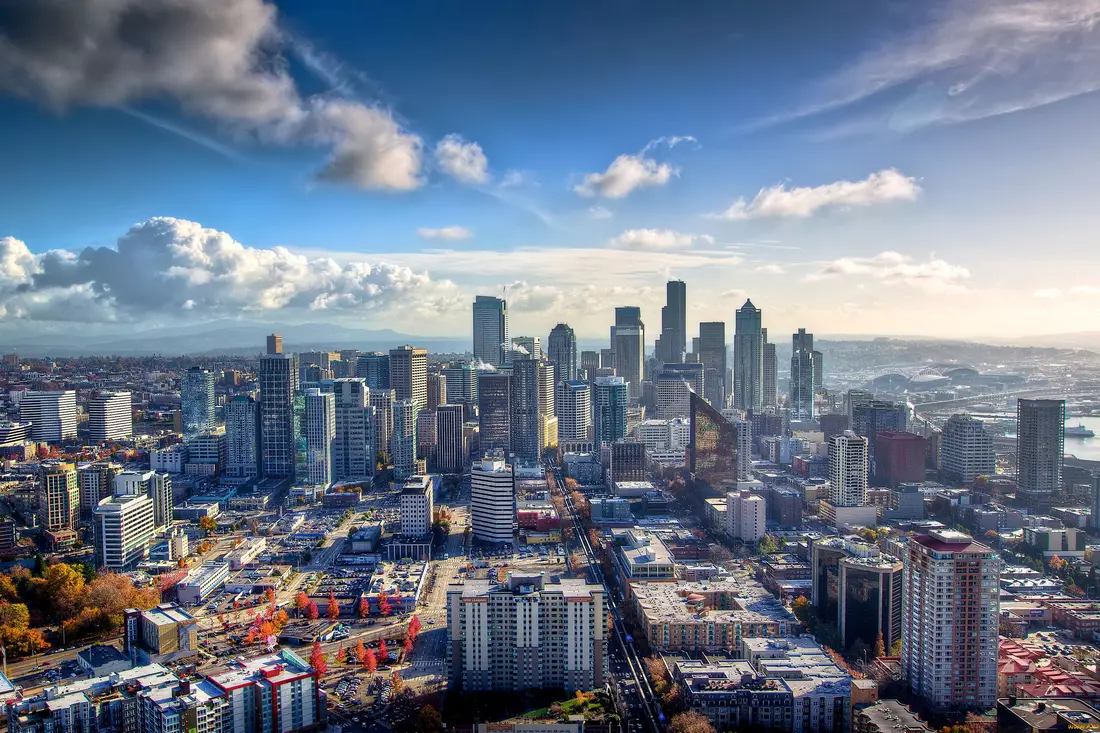Seattle — a city that attracts travelers not only with its culture but also with its natural beauty. One of its most stunning natural landmarks is a majestic mountain that dominates the city’s landscape. This active volcano, surrounded by protected wilderness, draws visitors from all over the world. In this article, we’ll explain why this unique natural wonder is worth a visit.
Mount Rainier National Park
Mount Rainier is one of the most massive volcanoes in the world with a height of 4400 meters. This is the summit of the Cascade Range, and also the center of the Rainier National Park, which invites you to explore not only the foothills of the volcano, but also stroll through fields of flowers, view millennial trees or look at glaciers. This is a truly amazing place to visit.
Mount Rainier Park offers excellent opportunities for scenic travel, hiking, camping and climbing. The pastime depends on what time of year you arrive. If you want to admire the field plants, come in July or August when the bloom is at its peak. In winter, you can go skiing here. And if you want to avoid the crowds, plan a visit in the middle of the fall week.
The park is 95 miles from Seattle and 70 miles from Tacoma. It is open all year round. Before visiting, our guide will check the weather conditions before going up, as even if it is sunny in the city, there may be clouds around the mountain that will prevent you from seeing most of the views. It is also important to check the weather in advance because poor conditions will lead to road closures, and snow can fall on the mountain in autumn, winter and spring.
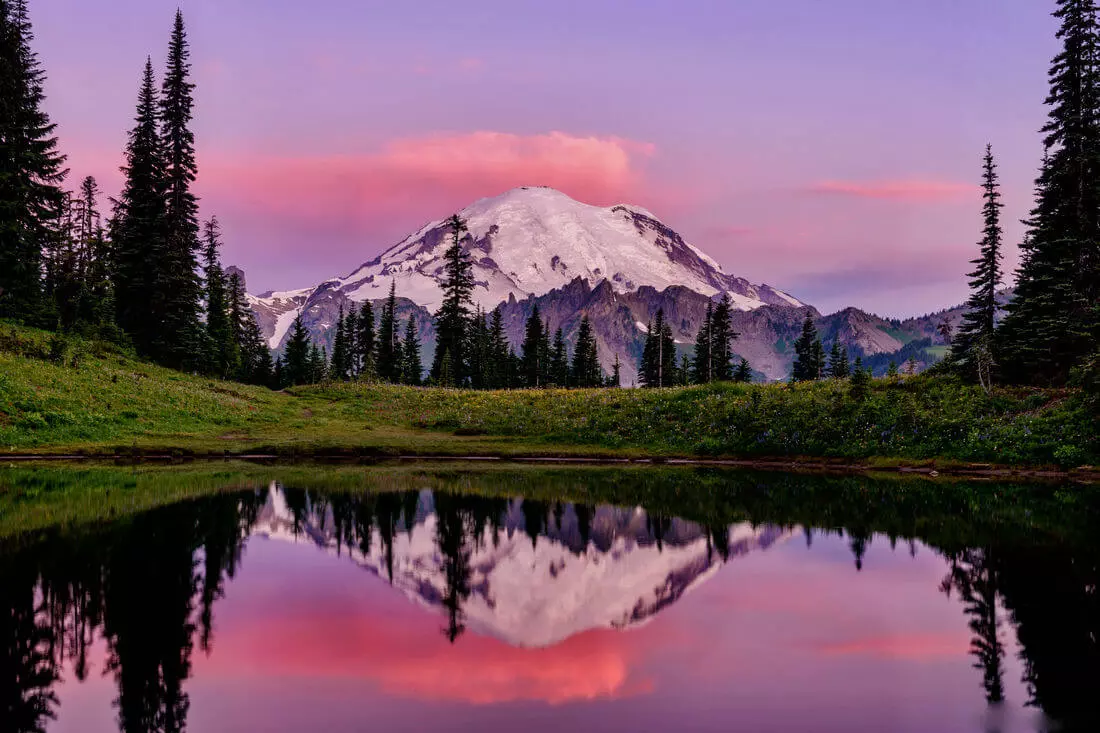
There is an entrance fee to the park that gives you the opportunity to visit it for seven days. The ticket costs $15 for each visitor over the age of 16. If you plan to visit the park more than once this year, consider getting a $55 annual pass.
There are six campgrounds in the park:
- Sunshine Point;
- Ipsyute Creek;
- Lake Movich;
- White River;
- Oganapekosh;
- Shyugar Rock.
The first is open all year round, while the others are open from late spring to early autumn.
If this is not an option for you, check out the National Park Inn and the historic Paradise Inn, which are located next to the park. Both offer affordable rooms, gourmet food, and comfortable accommodations.
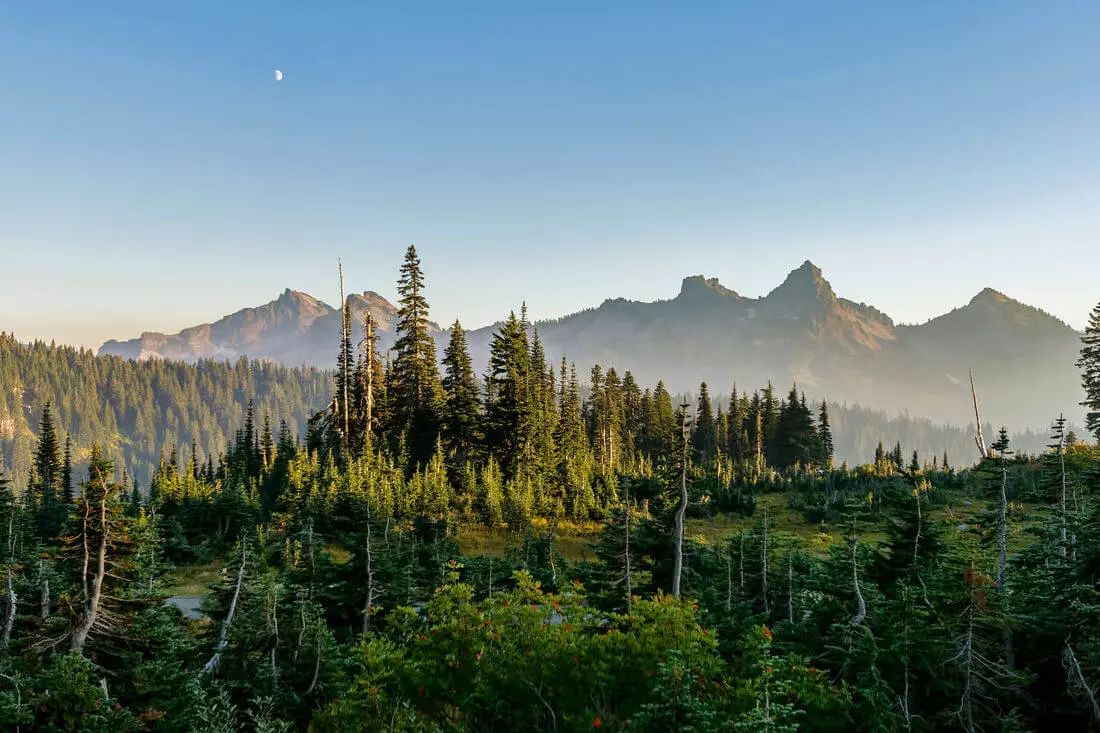
History of Mount Rainier
Rainier is a very old national park with a rich history. People settled here 6000 years ago, lived in cave shelters and acquired stone tools. There is no evidence that the Indians lived permanently on Mount Rainier, but the fact that some tribes stopped here in the warm season is a fact.
In the 19th century, people began to settle more actively on the mountain. When the national park was first established here, it was difficult to get to, although this problem has now been resolved. Mount Rainier National Park was originally not very large, but 34,000 acres of land were added to it in 1931.
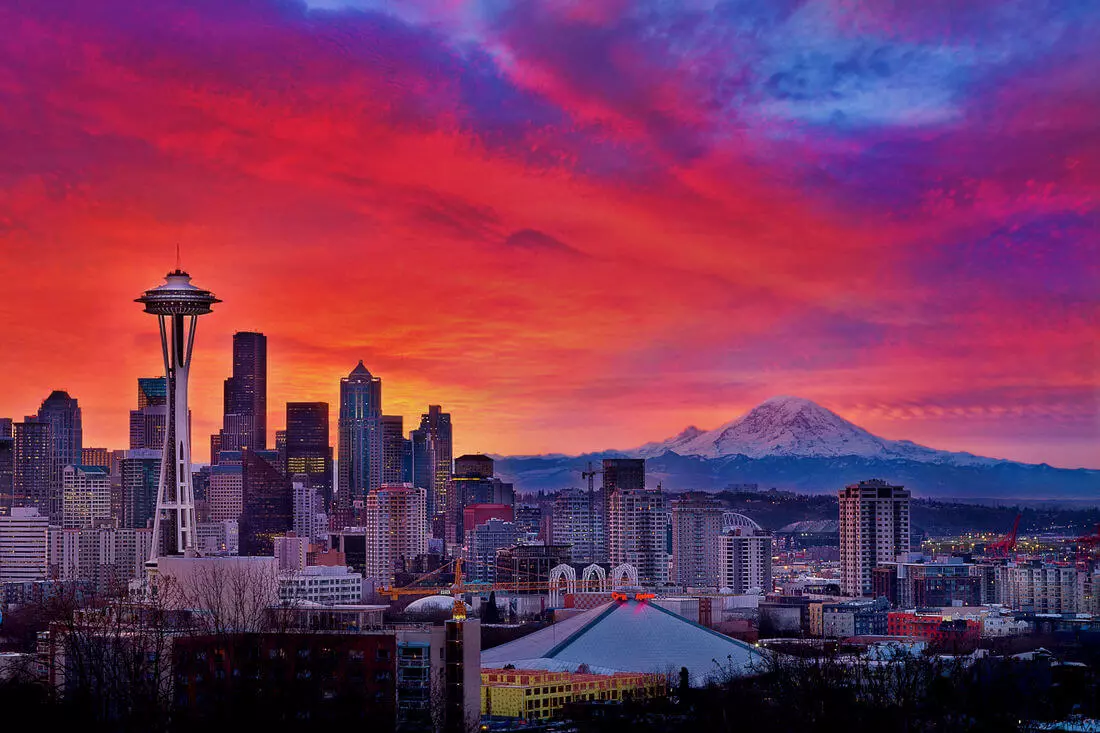
Rivers, forests, meadows, glaciers are located on the territory of the park of 378 square miles. Ever since Mount Rainier became a national park, it has begun to attract a large number of people. It was declared a National Historic Landmark on February 18, 1997.
At the time of its creation in 1906, the park was visited by a little over 1,700 people. Just nine years later, that number rose to 34,814. Today the park is visited by about 2 million people a year.
Exploring mountain trails and hidden corners of the park is much easier when the route is carefully planned. American Butler guides know the best viewpoints and how to avoid crowded spots to fully experience the area's atmosphere. If you want to learn more, check out our services.
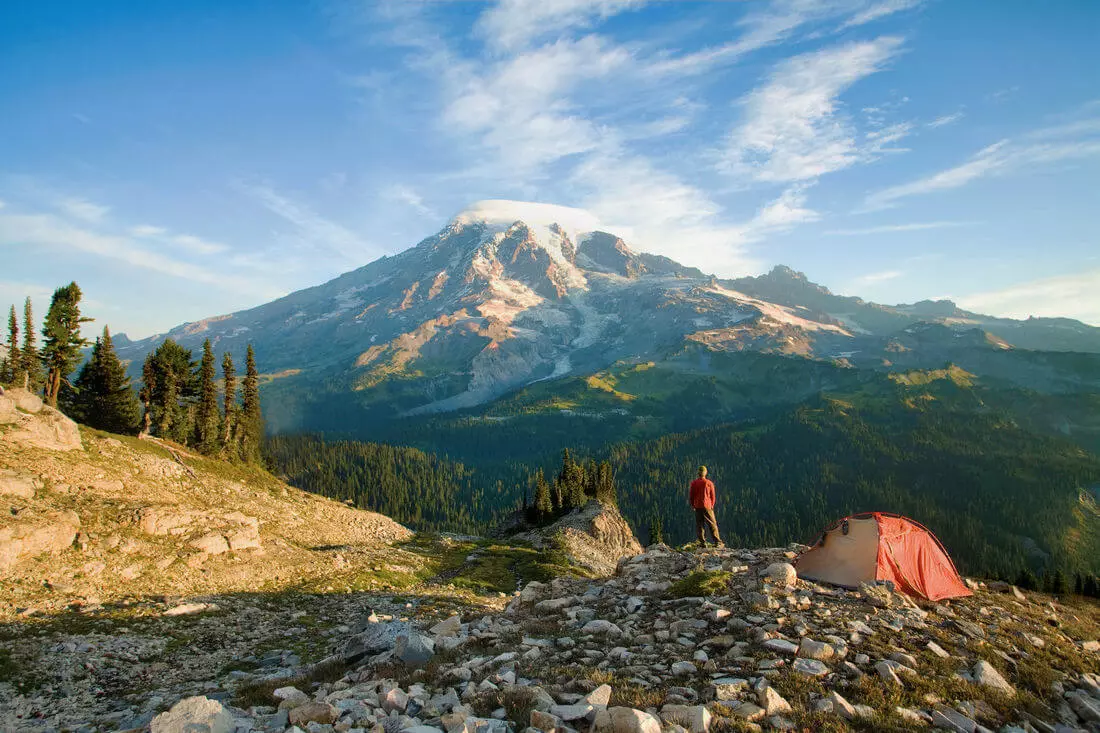
Tourist Infrastructure
The region's infrastructure is designed to make travel comfortable and accessible for everyone. Everything needed for a great trip is easy to find:
- Hotels and campgrounds. For those who prefer comfort, there are cozy hotels and mountain lodges with breathtaking views. Nature lovers can stay at campgrounds near popular trails.
- Restaurants and cafés. Local establishments serve dishes made from fresh regional ingredients. The menu ranges from simple snacks to hearty hot meals, especially appreciated after an active day outdoors.
- Equipment rental centers. Various rental shops offer everything needed for outdoor activities, including skis, snowboards, and snowshoes. This allows travelers to avoid carrying bulky gear.
- Visitor centers. Tourists can get maps, check weather conditions, and learn about current park updates. Staff members are always ready to answer questions and help plan activities.
- Guided tours. Both group and private tours are available, covering main trails and remote areas of the park.
- Ski lifts and transportation. In winter, ski lifts provide easy access to slopes. Shuttle services from nearby cities make traveling more convenient for those without a car.
With such well-developed infrastructure, visitors can focus on exploring the natural beauty of the park without worrying about the details of their trip.
Museum of Pop Culture in Seattle
Volcano and Park Facts
- The park is part of a complex ecosystem where diverse vegetation reflects several climatic and ecological conditions.
- Approximately 58% of the park's territory is covered with forest, 23% - subalpine meadows, and the rest - alpine, part of which consists of a permanent layer of snow and ice.
- Mount Rainier is home to 27 large glaciers and numerous snow or ice sheets covering 35 square miles. Glaciers are important indicators of climate change and are the main sources of water supporting six major river systems.
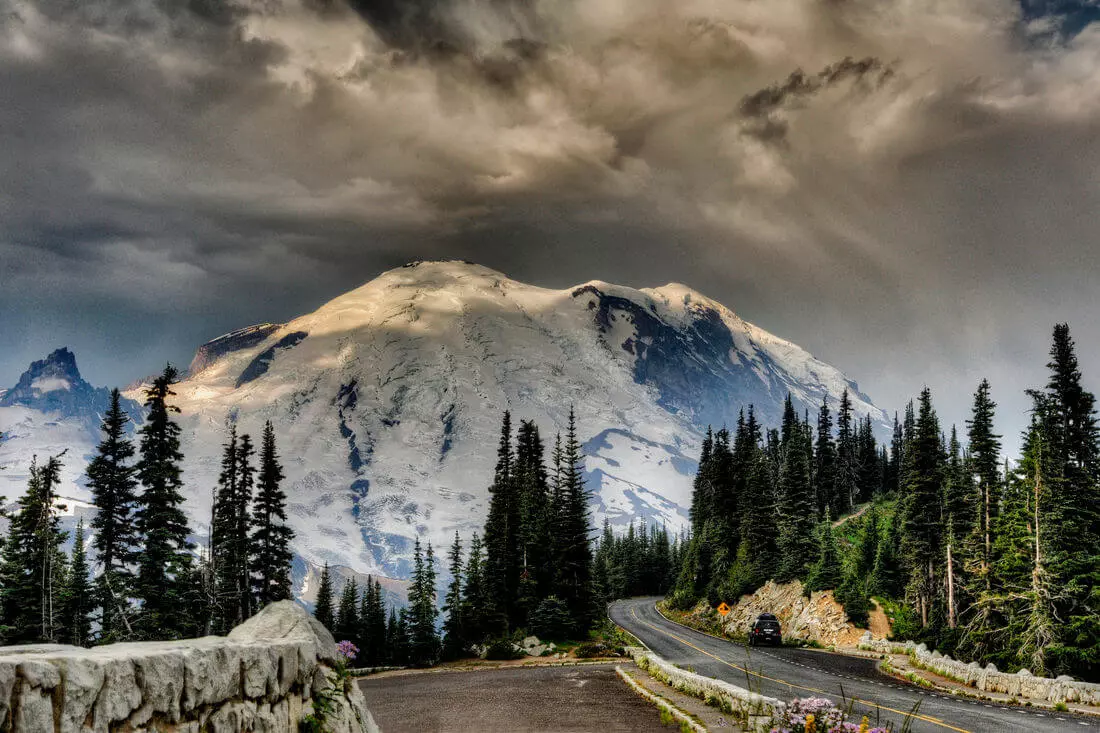
Outdoor Activities and Winter Sports
In winter, the mountain region transforms into a true paradise for outdoor enthusiasts. The area offers ideal conditions for a variety of activities in the fresh air. Some of the most popular winter experiences include:
- Skiing and snowboarding. Well-maintained trails cater to both beginners and experienced athletes. Ski lifts take visitors to different elevations, providing access to scenic slopes.
- Snowmobile tours. A great way to explore vast snowy landscapes and reach remote areas inaccessible on foot. Tourists can rent snowmobiles and join guided excursions.
- Snow hiking trails. Specially prepared routes make it safe and easy to walk through the snow. For extra convenience, snowshoes are available for rent.
- Sleigh rides. A favorite among families with children. Horse-drawn sleighs glide through snow-covered forests and along picturesque mountain roads.
- Winter photo tours. Snow-covered peaks, glaciers, and forests attract photographers from around the world. Guided tours help capture the most breathtaking landscapes.
Each activity comes with high-quality equipment, available for rent. The well-developed infrastructure ensures that visitors can fully immerse themselves in winter adventures without worrying about the details.
Additional Information
-
Address
-
Telephone
360-569-2211
-
Web site
-
Mode of operation
Daily from 9:00 a.m. to 4:30 p.m.
-
Cost
- Car for 15 people (within 7 days): $30.00;
- Pedestrian, cyclist: $15.00;
- Motorcycle (one passenger): $25.00;
- Annual Pass: $55.00.
| Address | |
| Telephone | 360-569-2211 |
| Web site | |
| Mode of operation | Daily from 9:00 a.m. to 4:30 p.m. |
| Cost |
|














